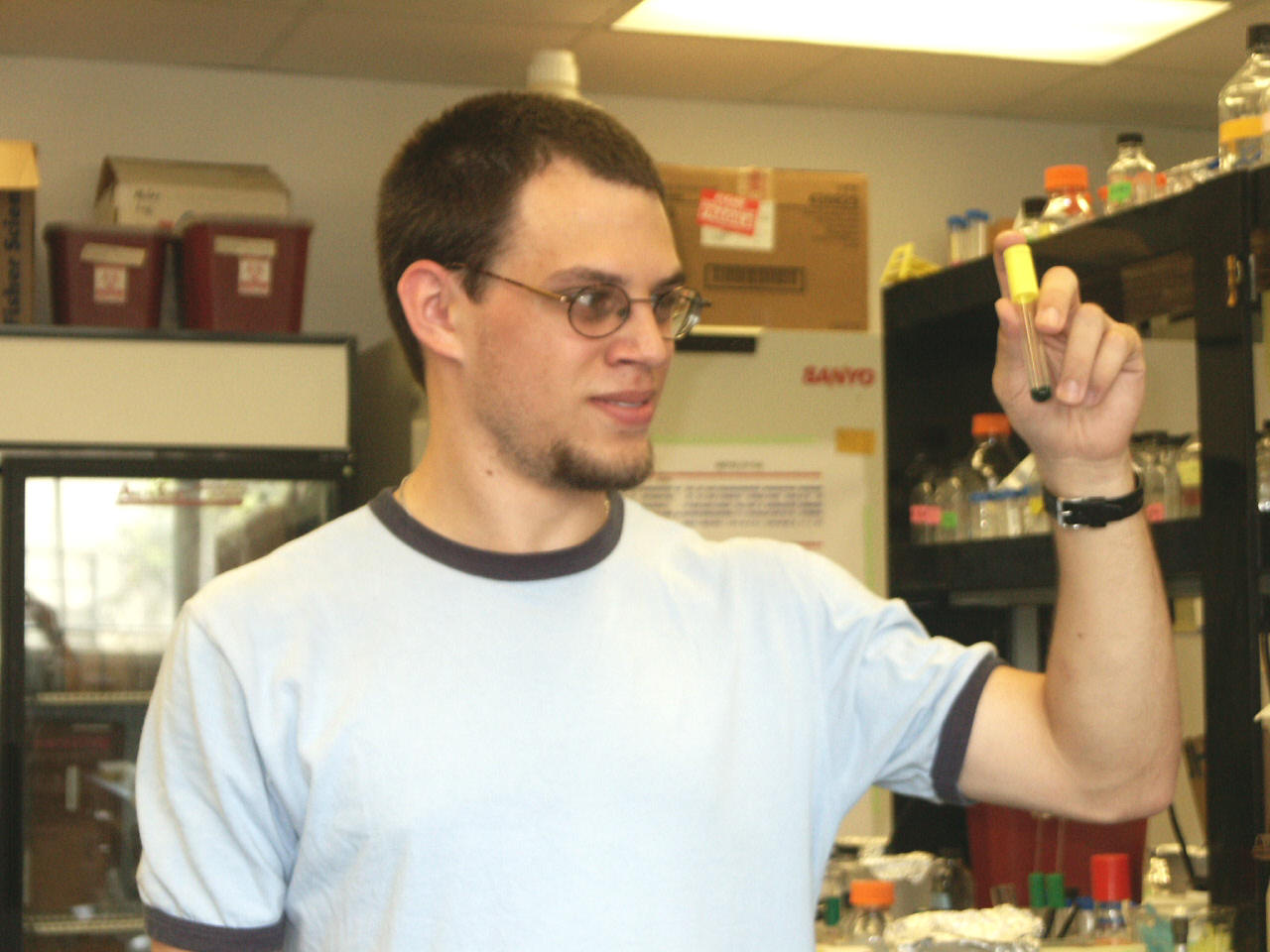
Skip to Goals

Skip to Goals
Mission
Many recent scientific developments have emphasized the need for a renewed focus on Microbial Biology. From the rapidly growing threats of bioterrorism, antibiotic resistant bacteria, and emerging infectious diseases to the potential for new and improved uses of microorganisms in biotechnology, the importance of basic research on Microbial Biology has become more obvious and urgent today than ever before. Despite these imperatives and opportunities, for several decades microbial biology was neglected because it was believed that microbial diseases would be eradicated. Hence, few academic departments or research institutes maintained the focus on microbial sciences needed to attack problems that demand an intimate understanding of microbial biology.
The Center for Microbial Sciences is a non-profit research organization dedicated to the study of microorganisms and viruses. Our mission is to provide a productive, stimulating, and interactive research environment that will lead to rapid progress in many fields of Microbial Biology. The Center will encourage multidisciplinary scientific research by bringing together a group of creative, cooperative investigators with different scientific backgrounds. The Center will integrate multiple scientific approaches to elucidate basic biological principles that will help in combating vexing human health problems caused by microorganisms and will stimulate novel applications of microorganisms in the biotechnology industry. The Center will be directly involved in enhancing preparedness for bioterrorism by supporting research with organisms considered most likely to be agents of biological warfare and will encourage research in the prevention, detection, and treatment of infectious diseases relevant to bioterrorism.
The Center for Microbial Sciences is affiliated with San Diego State University. Location in San Diego provides several advantages. The close proximity of the Center to a nucleus of biotechnology companies will facilitate interactions with industry. In addition, the Center will closely collaborate with neighboring institutions including UCSD, Scripps Research Institute, Salk Institute, Scripps Institution of Oceanography, and others, thereby expanding the available intellectual and physical resources.
The Center has three major goals:
Research topics at the Center for Microbial Sciences will include:
Funding for the Center for Microbial Sciences will come from federal, state, and private sources. To stimulate innovation, seed funding will be available for investigators at the Center to explore new scientific questions and develop new experimental technologies. Seed funding will allow investigators the flexibility to pursue innovative ideas and to respond quickly to new developments by providing the financial support necessary to pursue novel research areas that will lead to outside funding or industrial applications.
Director
- Stanley Maloy, Ph.D., San Diego State University
Scientific Advisory Board
- Jon Beckwith, Ph.D., Harvard Medical School
- Julian Davies, Ph.D., University of British Columbia & TerraGen Discovery Inc.
- Donald Helinski, Ph.D., University of California, San Diego
- Ann Hochschild, Ph.D., Harvard Medical School
- John Roth, Ph.D., University of California, Davis
- Moselio Schaechter, Ph.D., San Diego State University
- Thomas Silhavy, Ph.D., Princeton University
- Judith Zyskind, Ph.D., Director, BioScience Center, San Diego State University, and Elitra Pharmaceuticals
Academic Affiliates
- Farooq Azam, Ph.D., Scripps Institute of Oceanography, University of California, San Diego
- Doug Bartlett, Ph.D., Scripps Institute of Oceanography, University of California, San Diego
- Rick Bizzoco, Ph.D., Biology, San Diego State University
- Carl J. Carrano, Ph.D., Chemistry, San Diego State University
- Valerie de Crecy-Lagard, Ph.D., Scripps Research Institute
- Rob Edwards, Fellowship for the Interpretation of Genomes
- Joshua Fierer, M.D., School of Medicine, University of California, San Diego
- Don Guiney, M.D., School of Medicine, University of California, San Diego
- Jim Hoch, Ph.D., Scripps Research Institute, San Diego
- Kelly Hughes, Ph.D., University of Washington, Seattle
- Scott Kelley, Ph.D., Biology, San Diego State University
- David Lipson, Ph.D., Biology, San Diego State University
- John Love, Ph.D., Chemistry, San Diego State University
- Michael McClelland, Ph.D., Sidney Kimmel Cancer Center, La Jolla
- Kathleen McGuire, Ph.D., Biology, San Diego State University
- Victor Nizet, M.D., University of California, San Diego
- Andrei Osterman, Ph.D., Burnham Institute
- Jacques Perrault, Ph.D., Biology, San Diego State University
- Kit Pogliano, Ph.D., University of California, San Diego
- Joe Pogliano, Ph.D., University of California, San Diego
- Marta Prego, Ph.D., Scripps Research Institute, San Diego
- Forest Rohwer, Ph.D., Biology, San Diego State University
- Milton Saier, Ph.D., University of California, San Diego
- Herbert Schweizer, Ph.D., Colorado State University, Ft. Collins
- Anca Segall, Ph.D., Biology, San Diego State University
- Marcelo Tolmasky, Ph.D., California State University, Fullerton
- Constatine Tsoukas, Ph.D., Biology, San Diego State University
- Andrew Wright, Ph.D., Tufts University School of Medicine
Industrial Affiliates
- Alex Burgin, Ph.D., Emerald BioStructures, Inc.
- Olga Lomovskaya, Ph.D., Mpex Pharmaceuticals, San Diego
- David Low, Ph.D., Remedyne Corporation, Santa Barbara, CA
- Molly Schmid, Ph.D., Keck Graduate Institute, Claremont, CA
- Karen Shaw, Ph.D., R. W. Johnson Pharmaceutical Research Institute, La Jolla
- Jeffrey Stein, Ph.D., CSO, Sofinnova Ventures, San Diego, CA
- Mark Surber, Ph.D., Mpex Pharmaceuticals, San Diego, CA
- Dan Wall, Ph.D., Anadys Pharmaceuticals, Inc., San Diego, CA
Useful Links to the San Diego Microbiology community

Note: documents in Portable Document Format (PDF) require Adobe Acrobat Reader 5.0 or higher to view, download Adobe Acrobat Reader.